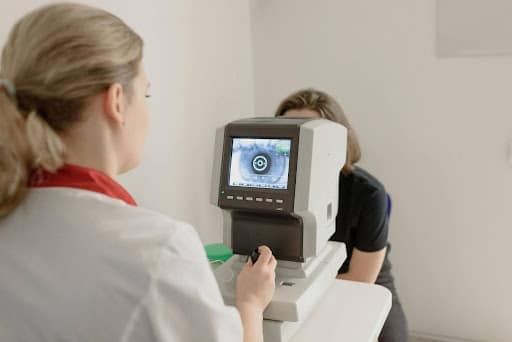
Glaucoma is a group of ocular conditions that can damage the optic nerve and lead to vision loss if left untreated. When medications or other treatments are unable to control the pressure inside the eye, glaucoma surgery may be necessary.
In this FAQ, Dr. Duane F. Austin answers the most commonly asked questions about glaucoma surgery, providing essential information for anyone considering this option for treating glaucoma.
What is Glaucoma Surgery?
Glaucoma surgery involves procedures designed to reduce the pressure inside the eye (intraocular pressure). The goal is to prevent further damage to the optic nerve.
Depending on the type of glaucoma, surgery may include laser procedures. This could include Selective Laser Trabeculoplasty (SLT), or traditional surgical techniques like trabeculectomy or shunt implantation.
What is the Success Rate of Glaucoma Surgery?
The success rate varies depending on the type of glaucoma surgery, the patient’s condition, and other risk factors. On average, 70-90% of glaucoma surgeries successfully lower intraocular pressure. However, some patients may require additional treatments over time.
How Long Does Glaucoma Surgery Take?
The duration depends on the surgical procedure. Laser surgeries like SLT typically take 5-15 minutes, while more invasive surgeries can take 30-60 minutes.
How Long Does Blurred Vision Last After Glaucoma Surgery?
Blurred vision is common right after surgery, and may last up to six weeks. Your vision should gradually improve during the recovery period.
How to Sleep After Glaucoma Surgery?
Avoid sleeping on the side of the operated eye for at least a week after surgery. Use extra pillows to elevate your head slightly, which can help reduce swelling and pressure. Your eyecare specialist may also recommend a protective shield.
When Can I Return to Work After Glaucoma Surgery?
Most patients can return to work one to two weeks after surgery, but this can vary. If your job involves heavy lifting or strenuous activity, you will likely need to take more time off.
Can I Get Laser Eye Surgery if I Have Glaucoma?
It depends on the severity and type of glaucoma. LASIK surgery can sometimes worsen pressure inside the eye. It is generally not recommended for those with advanced glaucoma. Always consult a glaucoma specialist or eye surgeon.
How Many Times Can You Have Laser Surgery for Glaucoma?
Laser surgeries like SLT can typically be repeated if necessary. However, their effectiveness may diminish with multiple treatments. Your eye surgeon will assess whether repeat procedures are appropriate.
Is Glaucoma Surgery Dangerous?
While all surgeries carry risks, glaucoma surgery is generally safe when performed by a qualified glaucoma specialist. Potential complications include infection, bleeding, or changes in visual acuity, but these risks are rare.
Can LASIK Surgery Cause Glaucoma?
LASIK surgery does not directly cause glaucoma. But, it can increase eye pressure temporarily during the procedure. This may pose a risk for individuals with glaucoma or narrow angles.
What Does Glaucoma Surgery Involve?
The specifics depend on the type of surgery. Laser therapy like SLT targets the eye’s drainage system to improve fluid outflow. Traditional surgical procedures involve creating a new drainage pathway or implanting a device to regulate intraocular pressure.
What Are the Types of Glaucoma Surgery?
- Laser Procedures: SLT, Argon Laser Trabeculoplasty (ALT), and Peripheral Iridotomy for narrow angles.
- Traditional Surgeries: Trabeculectomy, shunt implantation, or minimally invasive glaucoma surgeries (MIGS).
What Are the Recovery Times for Glaucoma Surgery?
Recovery times vary depending on the procedure:
- Laser procedures: Typically a day or two.
- Invasive surgeries: Full recovery may take several weeks, during which follow-up visits are crucial.
What Are the Risks of Glaucoma Surgery?
Potential risks include:
- Infection
- Bleeding
- Increased or decreased eye pressure
- Vision problems, such as blurry vision or changes in visual acuity
Conclusion
Glaucoma surgery is a valuable tool in treating glaucoma and preventing further vision loss. Whether you’re considering laser therapy or a surgical procedure, understanding the process, risks, and recovery is crucial.
Always consult with a glaucoma specialist or eye surgeon to determine the best treatment options for your condition. With the right approach, you can protect your ocular health and maintain your visual acuity.

Leave a Reply